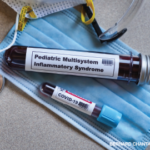NEW YORK (Reuters Health)—Immunomodulatory therapy is not recommended for most children with COVID-19 who typically will have a mild to moderate course of illness, experts advise in a guidance document in the Journal of the Pediatric Infectious Diseases Society.1
For children with severe or critical COVID-19, immunomodulatory agents “may be beneficial,” but the risks and benefits vary and the decision to use such agents “should be evaluated on a case-by-case basis with input from appropriate specialty services,” they say.
In a joint email to Reuters Health, lead authors Hamid Bassiri, MD, PhD, Children’s Hospital of Philadelphia, and Daniel Dulek, MD, Vanderbilt University Medical Center, Nashville, say, “Fortunately, the large majority of children who are infected by SARS-CoV-2 either remain asymptomatic or develop minimal or mild symptoms of COVID-19. In a very small minority of pediatric patients, infection may result in moderate and even severe symptoms, including the development of acute respiratory distress syndrome [ARDS].”
They note that in adults. progression of illness in severe and critical COVID-19 is accompanied by hyperactivation of certain components of the immune system. As such, a number of immunomodulatory approaches have been trialed in adult COVID-19 patients.
“Unfortunately, there continues to be a relative paucity of such studies in pediatric populations. Nonetheless, our goal was to make general pediatricians and pediatric specialists aware of the current literature and the rationale for use of immunomodulators in severe COVID-19 patients, while awaiting more specific guidance based on well-controlled pediatric clinical trials,” Dr. Bassiri and Dr. Dulek explain.
In the absence of such trials, a multidisciplinary panel of pediatric subspecialty physicians and pharmacists with expertise in infectious diseases, rheumatology, hematology/oncology and critical care developed a series of guidance statements based on best available evidence and expert opinion.
Recognizing that definitive evidence is lacking, consideration of immunomodulatory agents in cases of SARS-CoV-2 infection with clinical and biochemical evidence of cytokine storm should be limited to children with clear evidence of critical COVID-19 disease and risk for multi-organ failure, the panel advises.
To date, there are no immunomodulators with proven efficacy for the treatment of COVID-19 in children; therefore, the panel can’t recommend one immunomodulatory therapy over another.
There are a number of intriguing “unknowns” regarding SARS-CoV-2 infections children, including the full spectrum of disease presentations induced by SARS-CoV-2, Drs. Bassiri and Dulek tell Reuters Health.
“Although we have all heard of COVID-19, MIS-C, ‘COVID toes’ and other presentations of SARS-COV-2, to date we have not developed a complete mechanistic understanding of why certain individuals develop each of these disease manifestations [or remain asymptomatic]. While there may be virus-specific factors, or differences in the route of exposure or the initial inoculum size, host genetics and epigenetics also likely play important roles in determining the disease presentation and its severity,” they explain.



